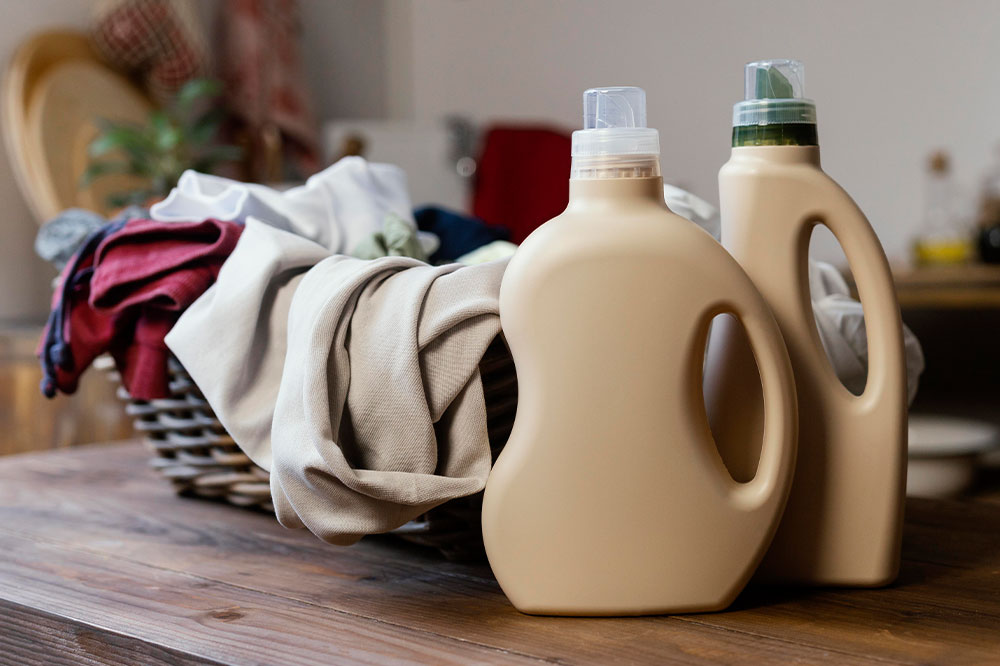6 ingredients in detergents that cause skin irritation

Laundry detergents and fabric softeners are key items on one’s shopping list as people regularly wash clothes, bedding, and even furnishings. However, even the major brands in the business heavily rely on certain chemicals and additives that increase the potency and efficacy of their product. This, of course, can come at the cost of irritating sensitive skin. So here are six common ingredients in detergents that you should avoid if you have sensitive skin:
Preservatives
Soaps, detergents, and laundry cleaners are laced with preservatives that increase the shelf life of the product. Phenoxyethanol and formaldehyde are common preservatives that kill bacterial growth and stabilize the solution for long-term effectiveness. However, their direct contact with sensitive skin can result in harsh flare-ups and inflammation, especially among those who already suffer from skin disorders like eczema and psoriasis.
Fragrances
Artificial fragrances are added to cosmetic products and laundry detergents to make fabric smell great after a thorough wash. However, most artificial fragrances are made using an ethanol base that can cause irritation once the detergent comes in contact with the skin. Fragrances also release harmful fumes that should not be ingested.
Parabens
Parabens are the most common chemicals in water-based laundry detergents, as they increase the product’s shelf life and prevent mold from affecting the formula. However, several studies suggest parabens increase the risk of endocrine disorders as exposure can trigger unstable hormone levels in the body. Further, parabens can irritate inflamed skin.
Emulsifiers
Emulsifiers are one of the primary chemicals in fabric softeners, added to stabilize the solution and prevent it from separating into two parts. However, studies indicate that emulsifiers can erode the protective outer layer of the skin and trigger unwanted allergic reactions in those with known skin disorders.
Bleach
Bleach is a highly potent corrosive that helps remove stubborn stains and dirt and can change the fabric’s color. It is one of the active chemicals used to produce laundry detergents. But some studies have confirmed excessive exposure to bleach can increase the risk of throat and breast cancer.
Colored dyes
Laundry detergents and fabric softeners also contain artificial colors and dyes that make the formula look vibrant. Dermatologists mainly advise against detergents with colors like red, green, and yellow, as these dyes can trigger surface irritation upon contact. Those affected by dermatitis or psoriasis should switch to organic detergents to avoid flare-ups.










